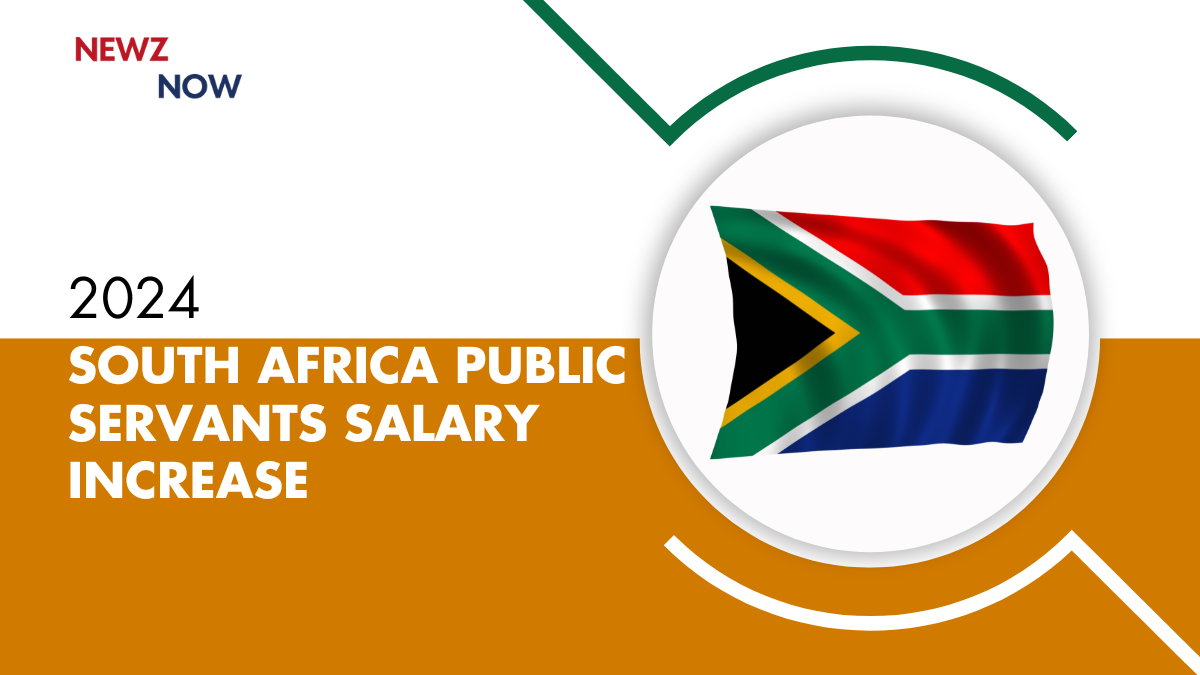South Africa plans to introduce a substantial salary adjustment for its public sector workers, drawing attention from various parties. As of April 1, 2024, public employees in national and provincial departments will be granted a 4.7% salary raise. This raise pertains to staff in non-senior Management Service (SMS) positions, specifically those on pay levels 1 to 12. The announcement, delivered by Minister for the Public Service and Administration, Ms. Noxolo Kiviet, forms part of the government’s initiative to assist employees while taking into account the country’s economic limitations.
South Africa Public Servants Salary Increase 2024
The decision to raise wages stems from carefully assessing the country’s economic climate and the need for fiscal responsibility. Minister Kiviet emphasized that while the government is mindful of its financial limitations, it also aims to provide fair and competitive compensation for public servants, who are essential to the functioning of the state.
Government’s Commitment to Public Servants
The South African government has reiterated its dedication to delivering affordable and accessible public services, while also recognizing the hard work of public servants. The 4.7% wage increase is part of a broader strategy to make the public sector an employer of choice, providing fair pay and career development opportunities. Minister Kiviet noted that public servants’ contributions are crucial, and competitive compensation helps attract and retain talent in the public sector.
Union Responses and Pushback
Despite the government’s efforts, several trade unions have expressed dissatisfaction with the 4.7% increase, arguing that it falls short of addressing inflation. Key unions opposing the offer include:
- Police and Prisons Civil Rights Union (Popcru)
- South African Policing Union (Sapu)
- National Education, Health and Allied Workers’ Union (Nehawu)
These unions, representing over 300,000 public servants, about 23% of the workforce, have criticized the increase and are threatening to strike if the government does not offer higher.
The Public Servants Association (PSA), which represents over 245,000 state employees, has taken a more cautious stance. Reuben Maleka, the PSA’s General Manager, mentioned that the union will monitor inflation during the year and request a modification if inflation surpasses expectations. He said, “If the CPI [consumer price index] exceeds the projected CPI, the PSA will demand that the shortfall be compensated.”
Financial Implications of the Salary Increase
The salary increase will significantly impact the government’s budget in the coming years. The National Treasury allocated R754.2 billion for public sector wages in the 2024/25 fiscal year, an increase of R33.1 billion from the previous year. This figure is expected to rise further, with public servant salaries projected to reach R788.6 billion in 2025 and R822.5 billion by 2026.
Public sector wages are a major component of the national budget, accounting for nearly 30% of the total government expenditure, currently at R2.4 trillion.
Projected Public Sector Salary Expenditure
| Fiscal Year | Projected Expenditure (Billion R) |
|---|---|
| 2024/25 | 754.2 |
| 2025/26 | 788.6 |
| 2026/27 | 822.5 |
Additional Benefits for Public Employees
In addition to the 4.7% increase, some public servants may be eligible for an extra 1.5% pay progression, depending on performance and years of service. Moreover, ongoing discussions are focused on potential adjustments to housing allowances and medical benefits, with the government aiming to align these benefits with inflation to support public employees further.
Conclusion
The 4.7% wage increase, which will take effect on April 1, 2024, demonstrates the government’s attempt to balance fiscal discipline with the need to compensate public servants fairly. However, the response from key unions indicates that further negotiations may be required to resolve dissatisfaction and avoid labor unrest.
While the government remains committed to supporting public servants through competitive wages and professional growth opportunities, managing the financial pressures of the national budget remains a priority. The outcome of ongoing negotiations will be crucial in shaping the future of public sector employment in South Africa.
Click the link to know more
